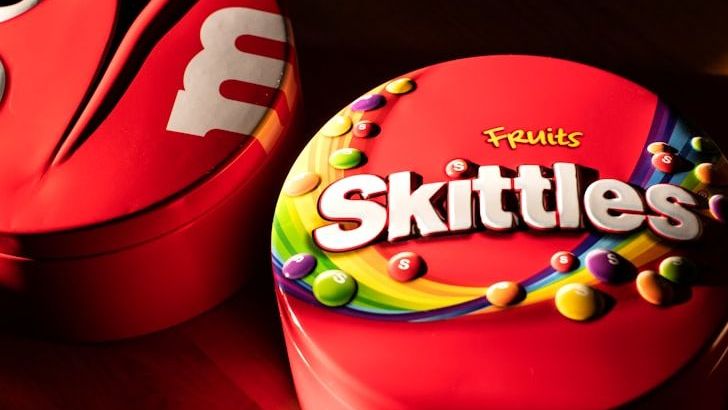Mountain Dew and Other Citrus Sodas with Brominated Vegetable Oil

Mountain Dew, once containing brominated vegetable oil (BVO), was literally banned in several countries due to this flame-retardant chemical ingredient. Several countries have banned the use of BVO in food and drink products, including the United Kingdom since 1970, India in 1990, the European Union in 2008, and Japan in 2010. Long-term exposure to BVO harms the nervous system, causing headaches, fatigue, memory loss, and accumulates in the body, impacting fat, liver, heart and brain tissue.
Fortunately, PepsiCo and Coca-Cola no longer use BVO in any of their products, with both companies declaring to stop using it in 2014. The FDA finally banned BVO in 2024, more than 50 years after the United Kingdom’s ban in the 1970s. Though major brands have eliminated the ingredient, it’s still found in many commonly available products like D&G Genuine Jamaican Soda, Sun Drop, and several store-brand soft drinks including HEB Orange Burst and Giant Orange Soda.
Skittles and Candy with Artificial Food Dyes

Skittles have been reformulated in Europe because the U.S. version contains banned ingredients titanium dioxide and artificial dyes Yellow No. 5 and Yellow No. 6. Norway specifically banned Skittles because the candy contains Titanium Dioxide, in addition to Yellow 5 and Yellow 6. There’s growing concern that food dyes may affect behavior in children, with research showing that food dyes may worsen symptoms of attention-deficit hyperactivity disorder (ADHD).
Titanium dioxide, which is FDA approved but being banned in Europe, was banned by the European Commission as a food additive, with all products sold in the EU required to be free of the chemical as of August 7, 2022. Mars Wrigley announced it will offer four candy products, including M&M’s and Skittles, made without synthetic Food, Drug and Cosmetic colors starting in 2026. Earlier this summer, Mars said it had removed titanium dioxide from Skittles in 2024.
Wheat Thins and Ritz Crackers with BHT Preservatives

Popular American products like Kraft Stove Top Stuffing and instant mashed potatoes contain preservatives BHA (butylated hydroxyanisole) and BHT (butylated hydroxytoluene), which have raised concerns due to suspicions of potential carcinogenic properties, and these preservatives have been banned in the UK, Japan and other European nations. Wheat Thins are banned in the U.K., EU, and Japan for BHT preservative. Ritz crackers are outlawed in several other countries, including the United Kingdom, Canada, and Brazil, because these seemingly innocent, salt-dusted snack vessels contain potassium bromate, which is a possible human carcinogen that poses potential health risks and can also be found in bread and bagels.
Potassium bromate finds its way into bread dough to enhance structural integrity, yielding a more substantial rise and pristine white color, but this chemical is associated with adverse health effects including cancer, impairment of the nervous system and damage to the kidneys, and while it has been banned in various countries such as the UK, Canada and Peru, it remains prevalent in numerous American bread variants. Potassium bromate is banned in the U.K. and many other countries including Canada, Brazil, and Argentina, but allowed in the U.S. in certain quantities, has been linked to cancer in humans as well as gut problems, and is still found in some breads, frozen pizzas, and baked goods.
Twinkies and Little Debbie Snacks with Artificial Colors

Popular American desserts like Twinkies feature Yellow 5 and Red 40 dyes, which while approved within the EU, must be accompanied by cautionary labels indicating their potential to trigger adverse effects in children, and unfortunately these dyes are often in food products intended for infants and young children without precautionary labeling domestically, with countries like Austria, Finland and Norway having banned Twinkies completely. When it comes to snack cakes, Twinkies are one of America’s most iconic, but overseas these cream-filled spongecakes are banned because they contain Yellow 5, high fructose corn syrup, and hydrogenated oils.
Little Debbie Swiss Rolls are banned in Europe for Yellow No. 5 and Red No. 40, Twinkies are banned in parts of Europe for Yellow No. 5, Lucky Charms are banned in some European countries for Red No. 40 and other synthetic dyes, and Gatorade is banned in some EU countries for Brominated Vegetable Oil and food dyes. According to Forbes, 129 million kids worldwide from the ages of 5-19 years old have ADHD, raising questions about whether there is a correlation between ADHD and the food that children are eating.
Coffee-Mate Creamer with Hydrogenated Oils

Coffee-Mate is banned in many countries including Switzerland, Hungary, Austria, Denmark, Norway, and Iceland due to hydrogenated soybean and cottonseed oils, which have been linked to heart disease, and while the United States also banned these ingredients in 2018, officials did nothing about existing product, meaning there’s still plenty floating around. Hydrogenated soybean and cottonseed oils got Coffee-mate banned in Austria, Hungary and several Scandinavian countries, with hydrogenated soybean oil found in margarine, fried foods, baked goods, coffee creamers, crackers, pre-made dough, vegetable shortening, microwave popcorn, potato chips, and packaged snacks.
Pillsbury biscuits contain partially hydrogenated soybean oil, a trans fat that has been linked to heart disease, and this ingredient can also be found in baked goods, coffee creamers, margarine, microwave popcorn, potato chips and packaged snacks. These products are banned in Australia, Switzerland, Hungary, Iceland, Norway and Denmark due to the dangers of hydrogenated cottonseed oils. Cottonseed oil can be found in products such as potato chips, cookies and crackers, margarine, mayonnaise, and salad dressing.






